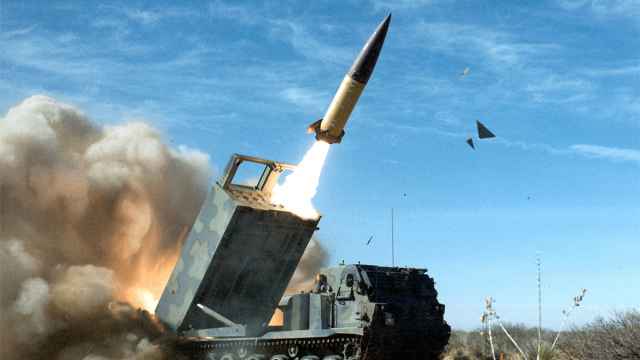LONDON/MOSCOW — The chairman of steelmaker Evraz believes a merger with No. 2 player Severstal would be a "good idea" — a proposal analysts said was unlikely because major shareholders would not want to surrender control.
"I guess that this [merger] would have several advantages," Evraz chairman and 24 percent shareholder Alexander Abramov told the Financial Times on Tuesday, adding that the two sides were not in talks. He did not say how a tie-up might take place.
Abramov told the FT that he would be willing to sell some shares and leave his post as chairman of Evraz, which the newspaper said would be required to meet FTSE 100 governance standards.
Chelsea Football Club owner Roman Abramovich holds 35 percent of Evraz, giving its two core shareholders a combined stake of 59 percent. Alexei Mordashov holds 82 percent of Severstal, which said it did not comment on speculation.
"There is no pressure for controlling shareholders to part with control. They have sufficient financial resources to develop as individual companies," ING analyst Maxim Matveev said. "The Russian steel landscape has been quite stable for many years, and I do not think that is about to change."
Evraz has been in focus since joining Britain's blue-chip FTSE 100 Index this month to expand its investor base and increase liquidity. Fellow precious metals miner Polymetal also joined the index.
Several other Russian groups have signaled similar intentions, including Polyus Gold. Its planned listing is being held back by government approvals in Moscow.
When Russian steel groups make acquisitions they generally look abroad, racking up more than $30 billion debt, largely on international M&A deals, prior to the crisis. The recent recovery allowed firms to trim debt and reinstate dividends.
A Message from The Moscow Times:
Dear readers,
We are facing unprecedented challenges. Russia's Prosecutor General's Office has designated The Moscow Times as an "undesirable" organization, criminalizing our work and putting our staff at risk of prosecution. This follows our earlier unjust labeling as a "foreign agent."
These actions are direct attempts to silence independent journalism in Russia. The authorities claim our work "discredits the decisions of the Russian leadership." We see things differently: we strive to provide accurate, unbiased reporting on Russia.
We, the journalists of The Moscow Times, refuse to be silenced. But to continue our work, we need your help.
Your support, no matter how small, makes a world of difference. If you can, please support us monthly starting from just $2. It's quick to set up, and every contribution makes a significant impact.
By supporting The Moscow Times, you're defending open, independent journalism in the face of repression. Thank you for standing with us.
Remind me later.





